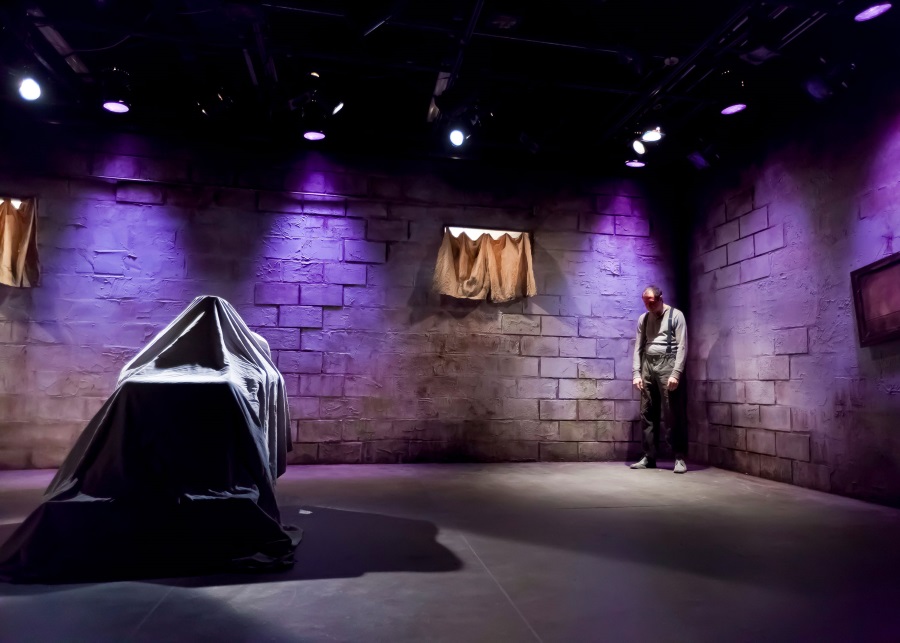By this past May, Houston’s Catastrophic Theatre had decided on their upcoming season and had begun working on securing the rights to their chosen productions. By the time the company had begun to secure those performance rights, COVID-19 numbers, fueled by the Delta variant, had begun to rise again. By mid-August, the theatre issued an announcement saying that they would not be announcing their 2021-22 season after all, due to health and safety concerns. Laura Moreno (she/her), the company’s managing director, said that it had become clear to them that this wave wasn’t going to be like last fall’s.
“It seemed more powerful than what we had experienced before,” said Moreno. “We started to get really, really nervous, because the idea had been that we were going to come back bigger and better than ever.”
Catastrophic had been envisioning an opening production featuring a dozen actors in their intimate 99-seat theatre. But the large cast and small space began to become a concern as the company tracked the progress of COVID-19’s variants in Texas. Moreno said they were keeping tabs on what outlets like The New York Times were forecasting and how the overall curve may affect them; originally it felt like the Delta surge hadn’t hit Houston. That is, until, Moreno said, “Suddenly it just exploded.”
According to the Texas Medical Center, the number of new cases in the Greater Houston Area jumped from 1,069 new cases per day last month to 4,892 new cases per day last week, with hospitalizations jumping from 154 per day to 390 per day over the same time span. The decision-making process for the theatre was only complicated by the ongoing battle in Texas over mask mandates, which has seen Houston’s mayor, Sylvester Turner, push back against Gov. Greg Abbott’s threat to penalize local officials who try to enforce such mandates. So Moreno said they consulted with local medical professionals and also looked around the country to see how peers were handling the rise in the Delta variant.
Results vary widely, as theatres around the country have begun taking various measures and weighing contingency plans as they head into an uncertain fall. In New York, Signature Theatre recently announced its decision to postpone Annie Baker’s Infinite Life, which was scheduled to open on Oct. 5, while keeping Anna Deavere Smith’s Twilight: Los Angeles, 1992, on the schedule for Oct. 12, at least for now. Meanwhile, many regional theatre communities, including Washington, D.C., Portland, Ore., Orange County, Calif., Rhode Island, and Chicago, have banded together to issue vaccine and mask mandates for their theatres to try to ensure safety and keep the field moving toward returning to in-person productions. Even the Broadway League has announced a vaccine and mask requirement for Broadway shows, like the currently running Pass Over.
Deb Clapp (she/her), executive director of the League of Chicago Theatres, which issued the joint mandate statement that included theatres like Steppenwolf, Goodman, Chicago Shakespeare, and Lyric Opera, noted the eagerness of area audiences to return to the theatre. Clapp pointed to the well-received School Girls; Or, the African Mean Girls Play, set to complete its run at the Goodman this weekend, as an example.
The same day the League released its joint announcement, the city of Chicago also reinstated its city-wide indoor mask mandate, a decision that has now been taken up by the governor to apply to the entire state, as a response to the rise in COVID cases in the area. For now, at least, there seems to be no indication that Chicago will need to close up shop again due to government restrictions.
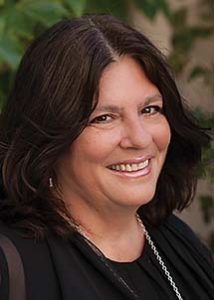
“There’s an extreme reluctance to go backwards on the part of city governments,” said Clapp. “We are being told by public health officials and by private infectious disease experts that this is a safe way for us to continue to do theatre. We will continue to seek the guidance and advice of experts as things continue to change.”
Clapp added that she’s hopeful things will start to turn around and head in a more positive direction. The sentiment was echoed by the Goodman’s artistic director Robert Falls (he/him), whose company is now in rehearsal for its second production of the season, José Cruz González’s American Mariachi, a co-production with Dallas Theater Center, produced in association with Teatro Vista and in collaboration with the Chicago Latino Theater Alliance and Sones de México Ensemble.
Falls noted that the oft-consulted Dr. Anthony Fauci recently theorized that the United States may have COVID under control by spring 2022, provided vaccination rates rise. Ideally, that hope is bolstered by the FDA’s recent approval of the Pfizer vaccine. Still, other theatres in the area are proceeding with caution, with Writers Theatre announcing a season with an initial production starting in December of this year (and many local storefronts, as I reported earlier, already putting off production plans to early 2022).
As in so many areas of life in the U.S. now, there may be a regional divide when it comes to reopening. As Catastrophic’s Moreno put it, “When everybody released the articles in regards to Broadway requiring vaccines, we talked about it. We were like, ‘Okay, can we do that?’ We did our research, and we can’t, unfortunately, because of the state we live in. Our hands are tied. So what we can do is we can plan smaller, we can go outdoors, or we risk it. We’re just an organization that’s not willing to put our patrons and our artists in harm’s way for art. I think there’s different ways that we can continue to make art and do what we love while still being cautious.”
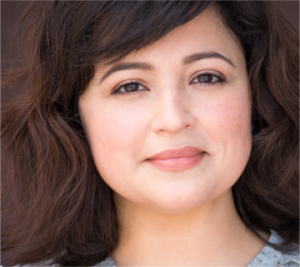
Moreno noted that, because they don’t own their building, Catastrophic is not able to make temporary adjustments to reduce capacity, like removing seats. And despite the theatre’s efforts to instill its own thorough COVID protocols, requiring its own workers to be vaccinated, the possibility of breakthrough cases have made the company’s leaders nervous. This was amplified, Moreno said, after reading about the Public Theater having to cancel multiple Shakespeare in the Park performances due to a member of the production testing positive for COVID.
“The conversation started to happen: Since we don’t own our own building, what will happen if we need to postpone or if we need to cancel?” recalled Moreno. After all, they only had their four weeks for the show, and wouldn’t be able to extend to accommodate a shutdown or delay if someone got sick. Putting tens of thousands of dollars into something so uncertain, and potentially dangerous—and that audiences may not even turn up for, out of concern for their own safety—“got really scary,” said Moreno.
Back in April, Moreno said Catastrophic had surveyed their audience, with many saying they’d be ready to return by September or October of this year. But as the months dragged on and the Delta variant surged, she heard from audience members who had grown more wary. If even their dedicated audience is hesitant to come back, wondered Moreno, what will that do to the production they’re trying to mount?
This concern is amplified by survey results from Audience Outlook Monitor, a collaboration between researchers, funders, service organizations, and cultural organizations to conduct surveys so organizations can make informed decisions on when to resume in-person programming. To date, the project has 660 participating organizations and has collected over half a million survey responses. According to its key takeaways, as of Aug. 16 they’ve seen a “dramatic decrease in readiness to return to cultural events,” noting a drop of 20 percent between July and August. Between 30 and 40 percent of respondents said they don’t anticipate returning to live events until January 2022 at the earliest.
Looking forward, Moreno said Catastrophic plans to revisit the conversation about the season in a month or so, before rehearsals are set to begin on their potential next (smaller) show; among other considerations, they’ll be taking their patrons’ temperature, so to speak. Though they’re planning to continue pandemic-era adjustments and move to outdoor shows in the meantime, Moreno said they won’t announce a proper season until they have a better idea of what the Delta curve looks like—and what potential future variants may be around the corner.
“We were hopeful,” said Moreno. “We were ready to get back into this year. We’re ready to go and do what we love. But it’s really hard right now, because our biggest concern is our artists and our audience and making sure that their well-being is first and foremost.”
“It’s difficult, under these circumstances, to be the person who has to make the call, especially when you know it’s not going to make everybody happy.”
The San Francisco Fringe Festival postponed its 2020 festival, pushing it to 2021 and replacing it with a smaller digital presentation last year. By this past July, the EXIT Theatre, which stages the festival, had hired a publicist in anticipation of finally returning to an in-person festival this fall, to kick off the reopening of the EXIT’s four-stage theatre complex. But as Delta concerns rose, EXIT artistic director Christina Augello (she/her) said they sat on the fence for a while. In the end, she said, “Theatre doesn’t happen overnight, so we had to make a decision.” The sad decision: to cancel the festival outright.
“The fringe’s main objective is to support artists, support their work, and develop an audience for it,” said Augello. “But as things got worse, I questioned, would we have an audience? And how would we be able to handle it? We’re a small festival, nobody gets rich off it. But a major thing for our festival is networking and community building and artists meeting other artists and collaborating, and none of that could have happened.”
After postponing once, Augello said, it started to feel like the company was holding the artists hostage by delaying a decision.
“It’s difficult, under these circumstances, to be the person who has to make the call, especially when you know it’s not going to make everybody happy,” said Augello. “But there was no way that I felt we could do a safe festival for everybody concerned, and the amount of stress that would create for all involved—the staff members, the audience, the performers.”
Augello said that Exit has seen some rental companies begin to cancel scheduled fall performances there, with still more looking to decide whether or not to move forward in the near future. With no plans to reschedule the planned festival, Augello said they refunded all who had bought tickets.
“Even disappointed people applauded the decision,” said Augello, “because they felt it was the right decision to make. It was really heartwarming to see some people express they were happy that we loved our community enough to cancel. They know that we were concerned enough about the artists, audience, volunteers, and staff enough that we were going to make that sacrifice.
“The comment was made that if we bring people together and people get sick, there’s no excuse for that.”
Oregon’s Ashland New Plays Festival (ANPF) has decided to move their festival online for a second year in a row. Jackie Apodaca (she/her), who took the reins as the theatre’s artistic director at the beginning of this year, said there was a lot of concern around the vaccination rates of Jackson County, where ANPF resides. Only around 52 percent of people aged 16 or older in the county have received at least one shot of the vaccine, and some Oregon hospitals have even begun postponing elective surgeries to accommodate the influx of COVID patients.
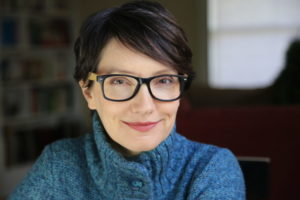
“The statistics are so bad here,” said Apodaca. “It feels as if most of the people who are patrons of places like Ashland New Plays Festival are people who are vaccinated, but who are scared because of how poor our vaccination rate is here and how high the case rates are going and the deaths that are starting to happen.”
Apodaca said that the company just couldn’t invite artists into a community like that. The company had been planning to have a fully vaccinated in-person festival this year. They had even contacted the playwrights who were to be involved to let them know about the vaccination requirement. Most of the directors and actors were hired, and ANPF was working to make sure that they would all be fully vaccinated in time. Apodaca said they had even come up with contingency plans to raise extra money just in case someone got sick and needed to be housed for longer than expected.
But as the COVID case numbers started to rise, Apodaca set a deadline for her board to make a decision on an in-person festival or another virtual venture. The board, Apodaca said, didn’t even need as much time as she gave them, instead opting to be proactive and deciding to have the company take another run at a virtual festival.
“We learned a lot from last year,” said Apodaca, “and I know we’ve all, in our industry, learned tons about how to make this work online.”
Last year’s festival featured two live readings of each show, an attempt to mimic the normal in-person schedule. While the overall feedback was positive, Apodaca said ANPF heard from attendees that watching four shows on a computer just wasn’t the same as being able to have an exciting week in person. This time around, Apodaca said, ANPF is looking to adjust the festival to have a longer run and give people more opportunities to access the readings on their own schedule, rather than feeling in a rush to watch multiple shows in a short amount of time.
Looking forward, Apodaca said the company, which produces quarterly events, now has its eyes on early 2022 to retry gathering in person. But she also called facing down the potential of two full years without in-person theatre “nerve-wracking.”
“The comment was made,” said Apodaca of conversations with ANPF’s board, “that if we bring people together and people get sick, there’s no excuse for that. There’s no way to justify that. If we go into the hole financially, then that’s what we’re going to do.”
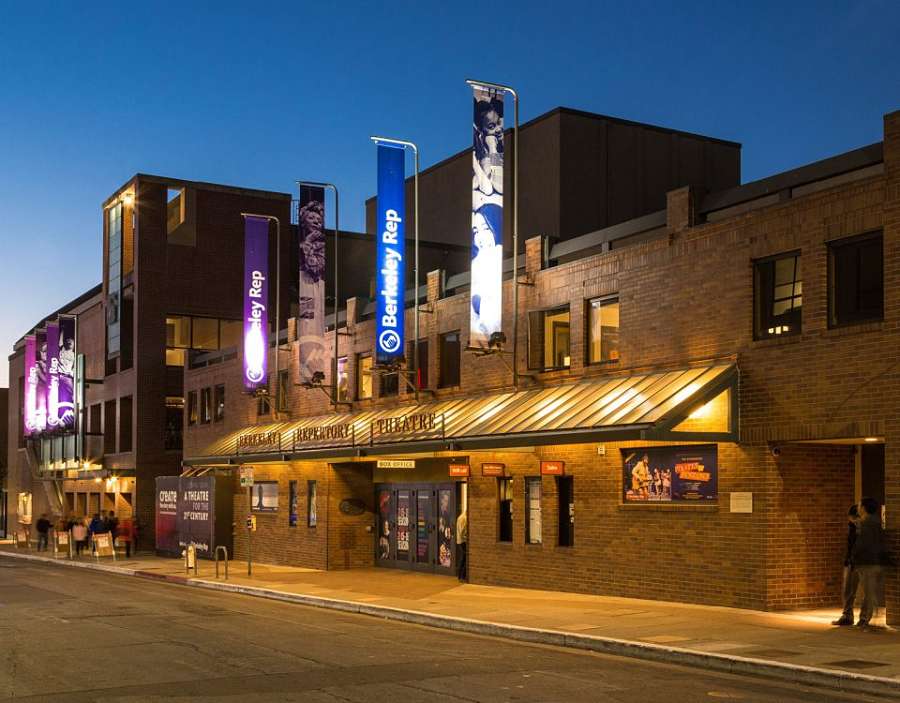
In California, Berkeley Repertory Theatre has opted to postpone the first show of their in-person season: Christina Anderson’s the ripple, the wave that carried me home, which was originally scheduled to begin performances on Oct. 1. According to Berkeley Rep managing director Susie Medak, the show had been cast, designs were done, and the artistic team was already deep into planning the production, though they were still a month out from beginning rehearsals.
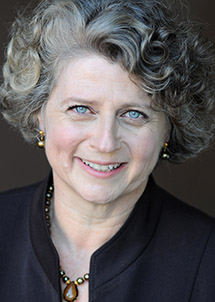
Like others, Medak said the theatre didn’t want to sit in the uncertainty around the current COVID surge, so Berkeley Rep pushed Anderson’s world premiere to the end of their 2021-22 season, setting Sept. 9, 2022, as the date the play will now begin performances. Medak said they opted to make the decision early, before flights had been booked to bring people together to begin the in-person rehearsal and work. Adding emphasis to the decision was the fact that the company had a couple of breakthrough infections, including one person becoming “quite ill,” Medak said.
“That unnerved me,” said Medak. “It really created a level of anxiety for me that I hadn’t expected. We had all thought once we were vaccinated, we’d all be fine and the world would move forward. For me, that was an ‘aha’ moment.”
The breakthroughs also led to Medak thinking about the potential impact one person missing might have on the rehearsal and development process of Anderson’s new play. After all, getting into a rehearsal room is a great chance for a playwright to really see what they have in their upcoming world-premiere play, and if an actor, or any major player on a production’s team, has to miss a week or more of rehearsal, that can impact the entire production.
“It just felt as though pushing forward to get this play up was in conflict with what our goal is,” said Medak, “which is always to support artists. This felt like we were really vulnerable in our ability to do that.”
Medak said patrons have taken the news of the postponement well. Though she said there are patrons who are “champing at the bit” to return, there are still some who are wary as they look at the potential of the Delta variant’s peak. No matter which side of the coin a patron falls on, Medak said she hasn’t heard anyone say they made the wrong decision by postponing.
When asked how this might affect the company financially, Medak expressed gratitude for the federal funding the company has been able to secure. Though she said the company would have likely made the same decision based on the other circumstances, she acknowledged that the economics of it all would have played an even larger role had they not received that federal funding. Part of the organization’s overall decision-making process included looking at the cost of mounting the production alongside the potential income.
“We thought that we probably are going to lose less money by doing it this way,” said Medak on moving the production. “We’re expecting so little in revenue in the first few productions of the season. And we’re not going to skimp on productions because we think that there’s going to be a slow return by the audience. We’re still going to do beautiful productions. We just expect fewer people to see them at the beginning.”
Berkeley Rep’s season is now slated to open with Charles Mee’s Wintertime in November. To her colleagues around the country who are looking at similarly difficult decisions around potential postponements or cancelations, Medak offered simple advice: Do your homework, look at your alternatives, and have a clear argument for why you’re recommending to go forward or not go forward. Importantly, she added, try to be non-judgemental as you look around at what other companies are doing. The field is far from homogeneous and the circumstances for different communities can vary wildly.
“Particularly in this environment, we’ll never know whether it’s the right or wrong decision,” said Medak. “It feels like an ethical dilemma at a certain point, in a way that we rarely feel in this field. Most of the time we’re dealing with make-believe. We always go, ‘It’s not life and death.’ But in this case it is.”
Jerald Raymond Pierce (he/him) is associate editor of American Theatre. jpierce@tcg.org

